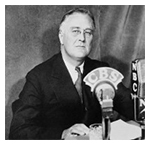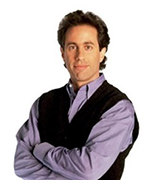Dear Colleague,
When Franklin D. Roosevelt said, "The only thing we have to fear is fear itself" during his 1933 inaugural speech, he must not have been talking to those with trypanophobia.
 Twenty percent of the population is thought to have a fear of medical procedures that involve needles, and for 10 percent of the population it's estimated that this fear has mushroomed into trypanophobia, extreme fear of medical procedures involving injections or needles.
Twenty percent of the population is thought to have a fear of medical procedures that involve needles, and for 10 percent of the population it's estimated that this fear has mushroomed into trypanophobia, extreme fear of medical procedures involving injections or needles.
The majority of children exhibited needle fear, while prevalence estimates for needle fear ranged from 20 percent to 50 percent in adolescents and 20 percent to 30 percent in young adults. In general, needle fear decreased with increasing age. Both needle fear and needle phobia were more prevalent in females than males. Avoidance of influenza vaccination because of needle fear occurred in 16 percent of adult patients, 27 percent of hospital employees, 18 percent of workers at long-term care facilities, and 8 percent of health care workers at hospital, according to a study published in the Journal of Advanced Nursing.
Whether it's trypanophobia, a belief by some that COVID-19 is actually a giant hoax, or a multitude of other reasons, it's not surprising that a significant portion of the population is hesitant or refusing to get vaccinated. But the good news is that some of that hesitancy is declining. Census data shows that the percentage of those who are hesitant or strongly hesitant about the vaccine dropped from 21.5 percent in mid-January to 15.6 percent in late March. One caveat: That survey was done before the J&J vaccine was "paused," which some surveys have shown is making the hesitant even more reluctant.
As pharmacists, we're familiar with crunching the data, so let's take a closer look at the nearly 85 percent of the population who say they are not hesitant or strongly hesitant.
There are approximately 250 million adults (18 and older) in the U.S. Subtract the 15.6 percent of adults who are vaccine-hesitant, that still leaves 212.5 million Americans not vaccine-hesitant. If all those people get either the two-dose Moderna or Pfizer vaccine (Approximately 7 million people have received the J&J vaccine but set that aside right now for ease of math), that is a total of 425 million shots. Through last Wednesday, the U.S. has administered 235 million shots meaning another 190 million shots are needed just to cover non-vaccine hesitant Americans. Community pharmacists can make a big dent in that number. And, if anyone can also reach the vaccine hesitant populations, it's also community pharmacists.
Last week, NCPA leadership met with White House officials about the important role community pharmacists are playing. We reminded the officials that pharmacy owners and their teams are highly trusted in their communities and when given a chance, are reaching the socially vulnerable and hesitant populations.
For example, one of NCPA's board members shared that he had facilitated a meeting with local clergy to talk with them about facts and myths associated with the vaccines. Another NCPA board member talked about how his vaccine administration efforts took the vaccine to the patient, not the other way around by going on-site to a local employer. By making it as convenient as possible, a high percentage of employees decided to get vaccinated. Another NCPA board member talked about how she took the vaccine to the people by being part of a community effort at a local park that targeted homeless people.
Reach out to other leaders in your community and educate them about the vaccines. CPESN® recently put together a PowerPoint presentation for pharmacy owners to use with local organizations like churches, synagogues, or community centers as well as civic organizations like the Rotary Club or the Chamber of Commerce. NCPA has more resources to help overcome vaccine hesitancy.
 Comedian Jerry Seinfeld has a funny bit about phobias:
Comedian Jerry Seinfeld has a funny bit about phobias:
"According to most studies, people's No. 1 fear is public speaking. No. 2 is death. Death is number two. Does that sound right? This means to the average person, if you go to a funeral, you're better off in the casket than doing the eulogy."
Pretty funny! Vaccine hesitancy is not so funny, though. Help patients overcome their fears and hesitancy in getting the COVID-19 vaccination. NCPA's resources are here to help.
Best,

B. Douglas Hoey, Pharmacist, MBA
NCPA CEO
P.S. CBS News sent a crew to Arkansas today, where independent pharmacies have been leading the effort to vaccinate citizens against COVID-19. They'll be featuring several local pharmacies, talking to them about how they've helped patients overcome vaccine hesitancy. Tune in to your local CBS affiliate tonight to watch independent pharmacists in action!
